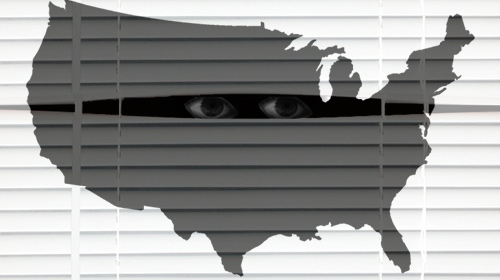
Edward Snowden will sit down next week—remotely of course—with FBI agent-turned-whistleblower-turned-civil libertarian Mike German for a discussion focused on the history of intelligence abuses, and to compare and contrast the activities revealed by the Church Committee with the NSA bulk surveillance programs launched after 9/11. The conversation will take place at the 25th annual Computers, Freedom, and Privacy (CFP) conference, the nation’s longest-running technology policy conference, which is gathering next week in Alexandria, VA (register ).
It’s an interesting topic. In many ways, the Cointelpro and NSA scandals are apples and oranges. The intelligence failures and abuses scrutinized by the Church Committee grew out of the turbulent domestic and international politics of the post-war era. The CIA (and, later, NSA) were new institutions in American government. While other Western countries—most famously, the British—had standing intelligence agencies going back hundreds of years, America had a long-standing concern with the anti-Democratic tendencies inherent in cloak and dagger intrigue.
But, after World War II, the United States experienced two simultaneous transformations. It entered the Cold War, which led to the growth of the national security state. It also, however, experienced an unprecedented expansion in both economic security and individual liberties. The interaction between the two was complicated, with overreach in one often leading to expansions in the other. The Red Scares led directly to the establishment of meaningful free speech rights, for instance.
The inherent tension between these two historical trends—the expansion of American intelligence and the “Rights Revolutions”—came to a head during Vietnam and Watergate, when the CIA, NSA and military turned inward to spy on political dissidents and, then, critics of the Nixon administration. Revelations of such abuses in the press led to Congressional investigations and, finally, the reforms of the late 1970s and 1980s. Those included the creation of a court to issue intelligence warrants and mandated reporting of covert activity to Congress.
Fast forward to .
Are there meaningful comparisons to be drawn between bulk surveillance post-9/11 and the covert domestic spying programs of the 1960s and 1970s? Was one era worse than another (and does that even matter)? Are both the inevitable outgrowth of a modern Western democracy like the United States also dominating global politics as the last remaining superpower?
Most importantly, can we create checks and balances that allow intelligence agencies to appropriately aid policymakers without turning their eyes and ears inward against people who just disagree with those policymakers, but haven’t broken the law?
Snowden and German are well-placed to discuss these questions. German, a former undercover anti-terrorism agent whose experiences have inspired a major Hollywood movie (now filming), is the author of Thinking Like a Terorrist, an examination of how and how not to fight terrorism, and a former ACLU lawyer now working for the Brennan Center in New York. Snowden, of course, is Snowden.
These questions, and many more, will be at the center of what promises to be a probing look at the work of American intelligence and its complex relationship with civil liberties. (There will also be plenty of other gripping events, including panels on issues as diverse as predictive policing, the debate over body cameras, food and privacy, and the future of biometrics. The full schedule is and registration is open and available .)

